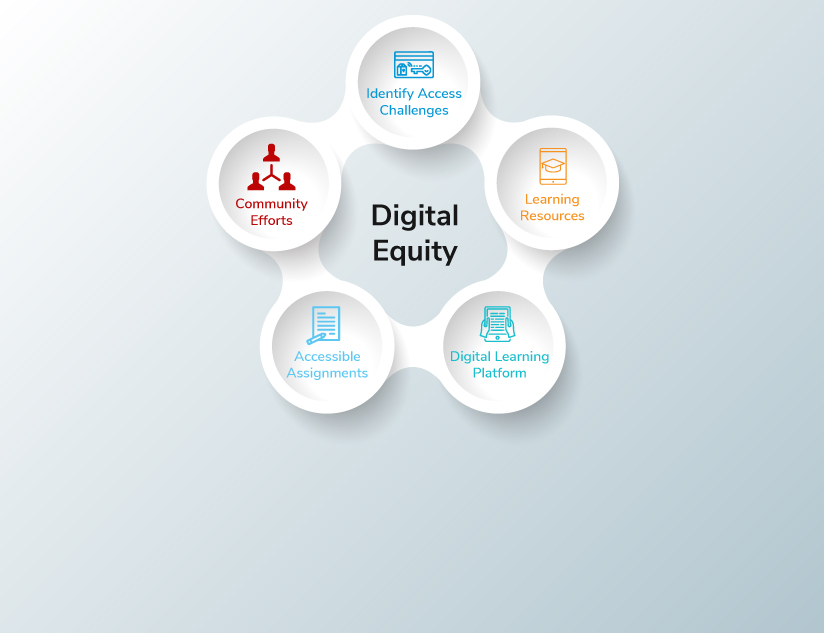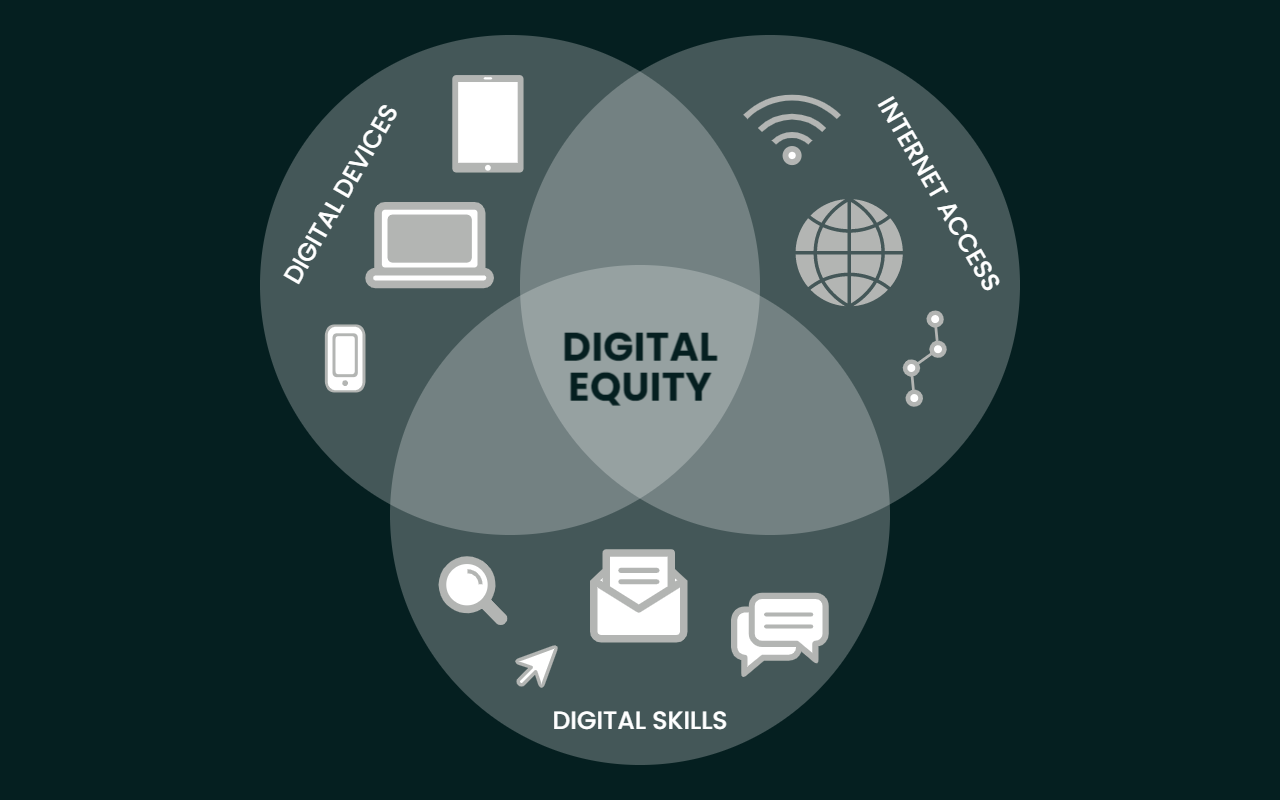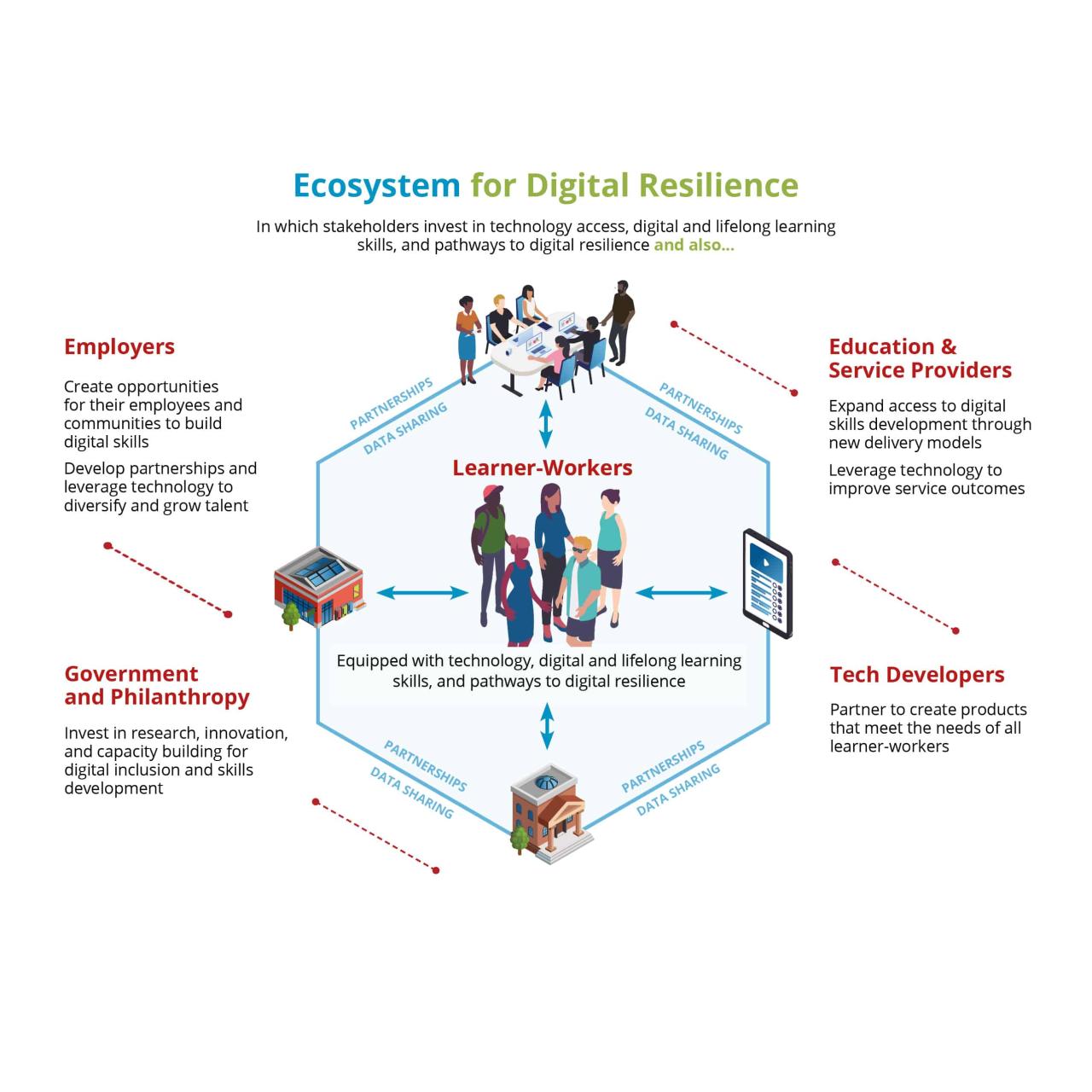How Digital Platforms Enable Equitable Value Sharing: Exploring Mechanisms and User Empowerment

In today's digital landscape, the concept of equitable value sharing on digital platforms has become increasingly crucial. From revenue-sharing models to user participation, the dynamics of value distribution are evolving rapidly. Let's delve into the mechanisms that drive equitable value sharing and explore how digital platforms are paving the way for a fairer digital economy.
As we navigate through the intricacies of value sharing in the digital realm, it's essential to understand the various factors at play and the challenges that come with ensuring fairness and inclusivity for all stakeholders involved.
Introduction to Equitable Value Sharing on Digital Platforms

Equitable value sharing on digital platforms refers to the fair distribution of benefits and profits among all participants involved, including users, workers, and the platform itself. It ensures that everyone receives a fair share of the value created through their contributions.
This concept is crucial for fostering a fair digital economy where all stakeholders are compensated fairly for their efforts and inputs. It promotes inclusivity, transparency, and sustainability in the platform ecosystem, leading to greater trust and collaboration among participants.
Examples of Digital Platforms with Equitable Value Sharing
Some digital platforms have excelled in implementing equitable value sharing practices. For example, platforms like Etsy and Patreon empower creators by allowing them to set their prices, retain ownership of their work, and receive a significant portion of the revenue generated.
Similarly, cooperative platforms such as Fairmondo and Stocksy prioritize democratic decision-making and profit-sharing among their members, ensuring a more equitable distribution of wealth and resources.
Challenges in Achieving Equitable Value Sharing
Despite the benefits of equitable value sharing, there are challenges in implementing and maintaining this practice on digital platforms. One major obstacle is the imbalance of power between platform owners and users, which can lead to unfair practices and exploitative conditions.
Additionally, issues related to data privacy, algorithmic bias, and regulatory frameworks can also hinder the achievement of equitable value sharing. Overcoming these challenges requires a concerted effort from platform operators, policymakers, and stakeholders to create a more equitable and sustainable digital economy.
Mechanisms for Equitable Value Sharing
Revenue-sharing models play a crucial role in ensuring fair distribution of value on digital platforms. By exploring different mechanisms, we can understand how these models impact various stakeholders involved. Let's delve into the comparison between profit-sharing and revenue-sharing, the significance of data sharing, and the role of blockchain technology in transparent value distribution.
Revenue-Sharing vs. Profit-Sharing
- Revenue-sharing involves distributing a percentage of the platform's total revenue among content creators or participants based on their contribution. This model ensures that value is shared proportionally to the generated revenue.
- Profit-sharing, on the other hand, distributes a percentage of the platform's profits after deducting all expenses. This model can sometimes lead to discrepancies as profit calculations may vary based on accounting practices and financial decisions.
- Revenue-sharing is often preferred for its transparency and direct correlation to the platform's performance, making it a more equitable mechanism for value distribution.
Role of Data Sharing
Data sharing plays a vital role in enabling equitable value distribution on digital platforms. By sharing relevant data with all stakeholders, platforms can ensure transparency and build trust among participants. Data sharing allows for better decision-making processes and enables fair assessments of contributions, leading to a more balanced distribution of value.
Blockchain Technology for Transparent Value Sharing
Blockchain technology offers a decentralized and transparent way of recording transactions, making it ideal for ensuring fair value sharing on digital platforms.
- Blockchain enables the creation of smart contracts that automatically execute revenue-sharing agreements, eliminating the need for intermediaries and reducing the risk of manipulation.
- Through blockchain's immutable ledger, all transactions and revenue distributions can be securely recorded and verified, ensuring transparency and accountability in value sharing.
- The use of blockchain technology can revolutionize the way value is distributed on digital platforms, fostering trust and fairness among participants.
User Participation and Empowerment

User participation and empowerment play a crucial role in enabling equitable value sharing on digital platforms. By allowing users to generate content and actively engage with the platform, value creation and distribution can become more inclusive and fair.
User-Generated Content Contribution
User-generated content contributes significantly to equitable value sharing by adding diverse perspectives, creativity, and authenticity to the platform. This content can attract more users, increase engagement, and ultimately drive value creation. Platforms like YouTube, where users can create and share videos, showcase the power of user-generated content in shaping the platform's success.
Empowering Users Strategies
Platforms can empower users by providing them with tools, resources, and opportunities to participate actively and make meaningful contributions. Strategies such as transparent communication, feedback mechanisms, reward systems, and community-building initiatives can help users feel valued and empowered. For example, social media platforms like Instagram empower users by allowing them to share their stories, connect with others, and build their personal brands.
Impact of User Engagement
User engagement has a direct impact on value creation and distribution on digital platforms. When users are actively involved in creating and sharing content, they become more invested in the platform's success. This, in turn, can lead to increased user retention, brand loyalty, and ultimately, higher value sharing.
Platforms like Airbnb, where users can host their properties and provide unique experiences, demonstrate how user engagement drives value creation.
Platforms with User Role in Value Sharing
Several platforms prioritize user involvement in value sharing, giving them a significant role in the platform's success. For instance, crowdfunding platforms like Kickstarter enable users to support projects they believe in and share in the project's success. Similarly, open-source software platforms like GitHub rely on user contributions to improve and expand the platform, emphasizing the importance of user participation in value creation and distribution.
Ensuring Diversity and Inclusion
Ensuring diversity and inclusion on digital platforms is crucial for promoting equitable value sharing. By embracing a variety of perspectives and voices, platforms can address biases and ensure fair distribution of value.
Initiatives for Diversity and Inclusion
- Digital platforms can implement diversity and inclusion programs to recruit and retain a diverse workforce.
- Platforms can also create policies that promote equal opportunities for all users, regardless of background or identity.
- Partnering with diverse content creators and businesses can help broaden representation and reach new audiences.
Importance of Representation in Decision-Making
- Having diverse voices in decision-making processes ensures that different perspectives are considered when determining value sharing mechanisms.
- Representation in leadership roles can lead to more inclusive policies that benefit a wider range of users.
- By involving diverse stakeholders in decision-making, platforms can better address the needs of marginalized communities.
Addressing Biases in Value Distribution
- Implementing algorithms that detect and mitigate biases in value distribution can help ensure fair outcomes for all users.
- Regularly auditing value sharing processes to identify and correct any instances of bias can improve transparency and accountability.
- Providing training on unconscious bias to employees and users can help mitigate discriminatory practices.
Case Studies in Prioritizing Diversity and Inclusion
- YouTube's #YouTubeBlack Voices initiative aims to amplify Black voices on the platform through funding and support for content creators.
- LinkedIn's Real Talk series addresses diversity and inclusion topics, featuring conversations with underrepresented professionals.
- Uber's partnership with National Urban League focuses on promoting economic opportunities for marginalized communities through the platform.
Closing Notes

As we conclude our exploration of how digital platforms enable equitable value sharing, it becomes evident that fostering diversity, transparency, and user empowerment are key pillars in creating a more balanced and sustainable digital ecosystem. By embracing these principles, digital platforms can truly harness their potential for driving positive change and value creation for all.
Essential Questionnaire
How can digital platforms ensure fair value distribution?
Digital platforms can ensure fair value distribution by implementing transparent revenue-sharing models, prioritizing user empowerment, and actively promoting diversity and inclusion.
What role does blockchain technology play in facilitating equitable value sharing?
Blockchain technology enables transparent and secure transactions, which can enhance trust and accountability in value sharing processes on digital platforms.
Why is user participation crucial for equitable value sharing?
User participation fosters a sense of ownership and community, leading to more meaningful interactions and value creation on digital platforms.






